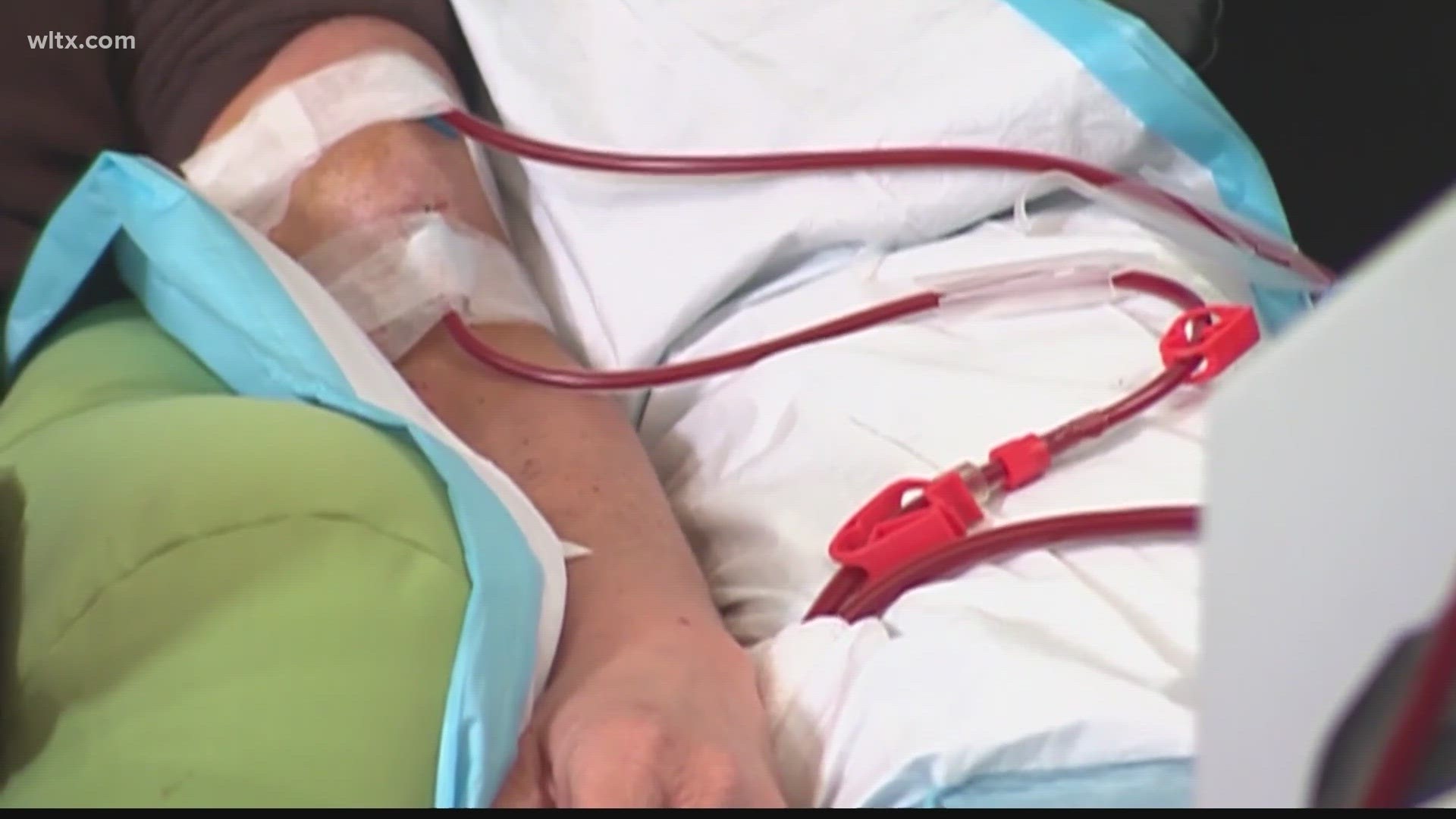COLUMBIA, S.C. — March is National Kidney Month, and doctors hope to bring awareness to kidney disease and risks of kidney cancer.
“It’s important to be aware about kidney cancer because its one of those cancers that doesn’t usually present with any symptoms until more advanced stages,” Dr. Goran Rac with Lexington Urology said.
Rac says there are symptoms you can look for at home.
“Symptoms of kidney cancer, if you do have them, would be blood in the urine that you could see, which would be red or dark color urine," Rac said. "It can be flank pain or any palpable masses that you can feel in your belly. Usually kidney cancer is symptom free.”
According to Rac, minimizing smoking, maintaining a healthy weight and blood pressure are ways to decrease chances of kidney cancer.
"These days, kidney cancer is most often found incidentally, meaning you got a scan or imaging for some other health problem you might be having, and we happen to find a kidney lesion,” Rac said.
March is all about bringing awareness to kidney cancer and disease.
Teri Browne is the Dean of the School of Social Work at the University of South Carolina. Before her time as dean, she was a dialysis social worker.
“We know in South Carolina that people who are living with kidney failure, so their kidneys don’t work. That’s increased more than a third in the last two decades,” Browne said. "Right now about 14,000 people in South Carolina have kidney failure, the majority of those are on dialysis, and we have about 4,000 people in our state who have received a transplant.”
According to Browne, as the number of dialysis patients with kidney failure increase in South Carolina, so has the number of transplant centers.
“In our state we now have three different transplant centers. We’ve got one in Lancaster with MUSC, MUSC Charleston, and also Prisma Greenville," Browne said. "That’s a big increase from when I came to this state 15 years ago. We used to only have one. Its just really important to know about your kidney health, talk to your family and friends about it and get screened so that you can take action now.”

